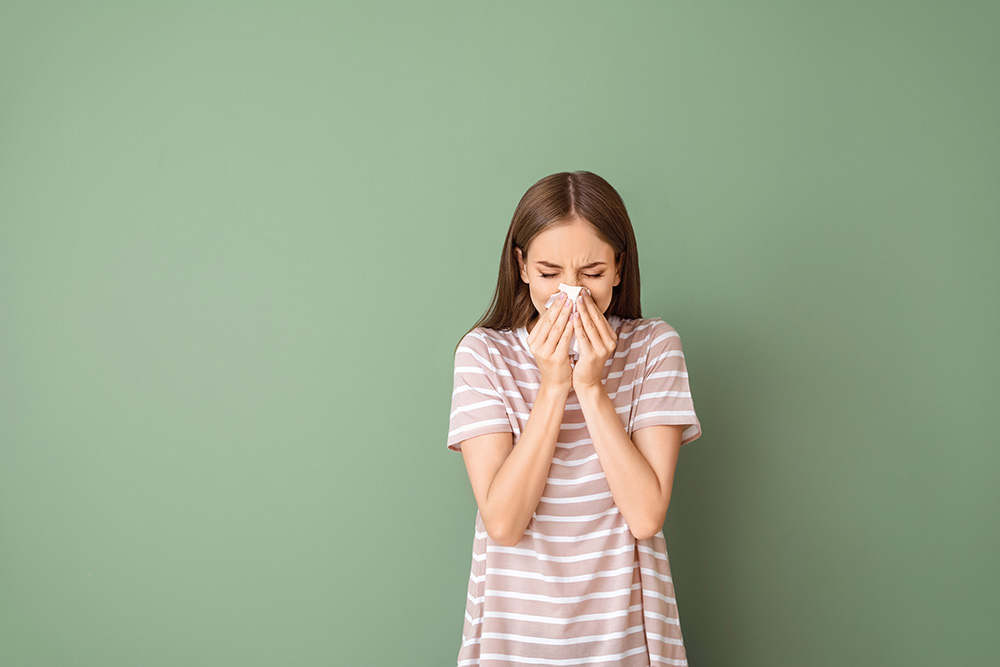
Spring marks the end of the winter blues, but not for everyone. Allergy sufferers often report lower energy and mood levels during hay fever season.
Studies reveal that springtime allergy sufferers have a 50 per cent higher risk for depression, with symptoms including sadness, irritability, and fatigue. Despite the correlation, researchers have yet to determine a cause for the link between allergies and depression. Two prevailing theories point to:
Biochemical signals
An allergic reaction is an immune response that releases protein molecules called cytokines into your system. This biochemical response may impact the areas of the brain that control mood, behaviour, and cognition.
Circumstantial link
Depression symptoms may be a knock-on effect of the allergy experience. Physical discomfort and sleep disruption caused by allergies can result in fatigue and shifts in mood. Additionally, side effects of antihistamines can resemble depression symptoms. If you suspect springtime sneezing and sniffling are affecting your mood and energy level, take some comfort in knowing you’re not alone.
Managing Allergy Symptoms
Keeping your seasonal allergies under control may help you manage your mood and reduce fatigue. A few strategies to try are:
- steam inhalation
- nasal irrigation with a neti pot helps clear your sinuses
- ginger and green tea can help reduce inflammation
- massage calms the mind and has an anti-inflammatory effect
- stay indoors during afternoons and evenings when pollen counts are highest, more so on a windy day
- wash your bed linen once a week
- avoid hanging laundry outside as pollen can stick to your sheet, towels and clothes.
From a medical perspective, depression and allergies are separate ailments. Don’t hesitate to reach out to a mental health professional if your life is impacted by unexplained changes in your energy levels or moods.
